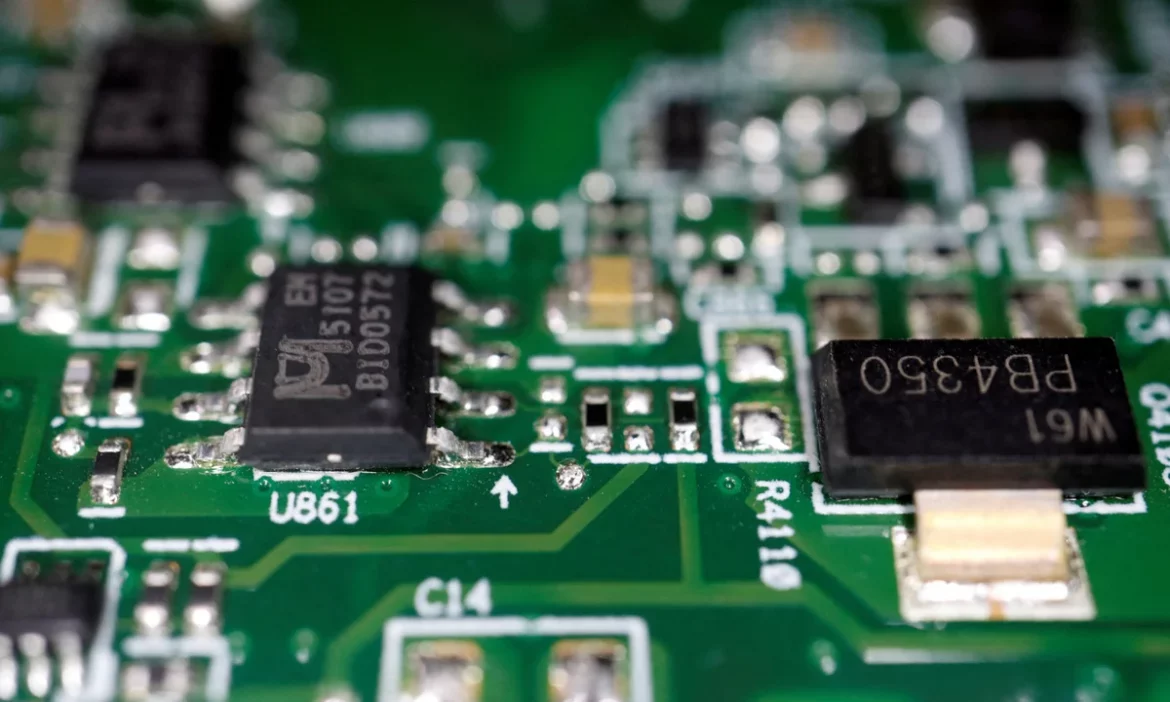Producers of PFAS chemicals and semiconductors, which is a key part of most electronics, have reportedly formed a group that develops industry-friendly science aimed at heading off regulation as the facilities release high levels of toxic waste.
According to available information, the group, called the PFAS Consortium, was formed during a boom in domestic semiconductor production spurred by the Chips and Science Act that has led to $825bn in investment aimed at shoring up the industry.
Left unchecked, however, the boom could also generate huge levels of toxic waste, experts fear. The semiconductor industry is a prolific polluter and a major source of unregulated and unmonitored toxic PFAS, or “forever chemicals”, some of which also turn into potent greenhouse gas.
“Hardly anyone has been paying attention to the toxic waste from the industry as it grows at an enormous rate,” said Lenny Siegel, a member of Chips Communities United, a group working with industry and administration officials to try to put in place environmental safeguards.
“Next time you do a Google search or chat, you’re using chips … that were produced in a way that released PFAS in an environment irreversibly.”
Testing data from 2022 from one US production plant, or fab, seen by the Guardian showed as much as 78,000ppt of PFAS in wastewater from some samples. The EPA legal limit for several common compounds is 4ppt.
Read also: Study shows rubbish, disease could disrupt Antarctic ecosystems
Public health advocates are increasingly sounding the alarm and calling for simple protections to curb semiconductor PFAS waste while pushing the industry to find safer alternatives, but manufacturers have mobilized in response.
The consortium’s white papers circulated among policymakers make their case against regulations. In a document titled “Impact of a potential PFAS restriction”, the consortium acknowledges its PFAS pollution, but repeatedly stresses that there are very few regulations and opposes proposals to monitor or restrict waste.
Finding safer alternatives is “impossible in some instances”, the paper states, adding that finding alternatives would require “stepping back decades in technological advancement”.
It touts industry efforts to cut back on waste, stating that the industry would continue to voluntarily reduce pollution “if exemptions [to regulation] are granted”.
That seems to have caught lawmakers’ attention: a bipartisan amendment in the defense bill that is likely to be approved would exempt new semiconductor manufacturing projects from environmental review – legislation on which federal records show lobbying by the Semiconductor Industry Association trade group, which organized the PFAS consortium.
In a statement, Laurie Beu, the Semiconductor Industry Association executive director, said the consortium “is a purely technical effort comprised of industry experts around the world and dedicated to collecting the data needed to formulate an industry approach to PFAS based on science”.
The Chips Act is at odds with the Biden administration’s 2021 sweeping plan to rein in PFAS pollution, and policymakers were largely ignoring the public health consequences, Siegel said. However, a group of US senators, including Ed Markey of Massachusetts, recently urged the commerce department to impose stricter regulations on chip producers.
Story was adapted from the Guardian.
